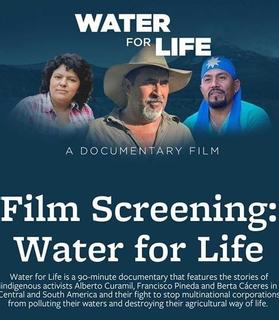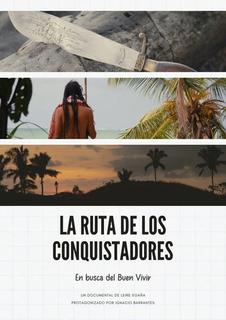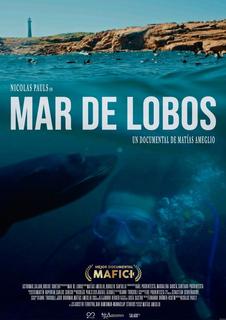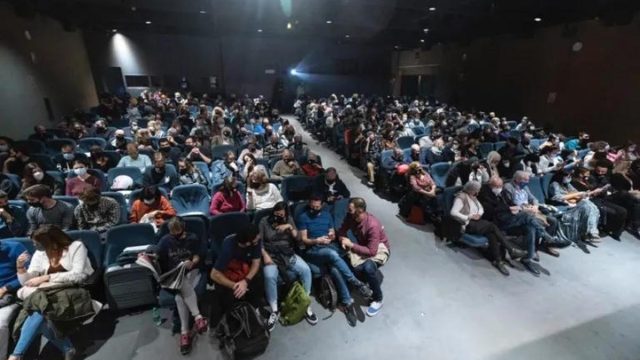A natural film festival THE SUN that he has been a a tool for public awareness and action against major social and environmental issuesopen it 31st edition on November 1stand films from 138 countries and a new section dedicated to water.
In this edition they will give more than 1,500 films from 138 countriesabout Only 100 will compete for each prize that SUNCINE awards in its five categories. In addition, there will be well-known people such as the French filmmaker, writer, critic and poet Cyril Dion. Eight international films are Five Spaniards will choose the Sol de Oro in the official category.
SUNCINE is this year’s a multi-level eventand show it in person and on the APP SUNCINE and Play RENFE platform, turning the AVE and long-distance trains to the center of the Festival. They will also be broadcast through the platforms CaixaForum +, 3Cat, Xarxa + and special programs on Betevé Television, the organization of the event said in a statement.
Looking out over the water
This year the festival pays special attention to the problem of drought and water management, For this reason, it has launched a non-competitive segment, ‘Panorama: We Are Water’, which focuses on the scarcity and sustainable management of water and drought.
Movie’Water of Eternal Life’ It will be presented to highlight the problem, and the subsequent debate on Natural Justice at the Faculty of Law of the University of Barcelona with various experts.

Poster announcing ‘Life-Giving Water’ / Organizations
‘Water For Life’ tells the story of three amazing people: Berta Caceresa leader of the Lenca people in Honduras who was killed for his actions; Francisco Pinedaa peasant farmer in El Salvador; and Alberto Curamilleader of the Mapuche tribe in Chile. Both refused to allow government-sponsored companies and foreign organizations to divert water for mining, hydroelectric projects or large-scale agriculture. Although the companies and government officials assured them, they knew what awaited them: polluted water, environmental damage and damage to their communities.
The development of natural production in Spanish audiovisual
On the other hand, a section Ñwill show the development of the environment in Spanish audiovisuals, and the comparison of eight entries, five in competition and three starts.
International films show human and environmental issues. ‘The Last Shepherds’, follows the Mier brothers, shepherds who have lived for 5,000 years in the Picos de Europa. ‘Pumani Mama’ tells Meri that she will fight for fresh air after noticing her daughter’s breathing. ‘The Route of the Conquerors’ explores Costa Rica’s biodiversity and “well-being.” ‘Sintrópica’ shows the determination of Jaime and his friends to restore agriculture in the Iberian Peninsula. And ‘Seeds of salt and pepper’ shows the collaboration of five women entrepreneurs in sustainable projects.

‘Way of Conquerors’ poster / Organizations
Other stages that complete the Festival are ‘Visual’which includes articles that provide the viewer with a global and ‘Monarch’which features short films and animations for children and adults.
The international literature explores similar approaches. ‘Blue Carbon’ shows the potential of coastal ecosystems in the fight against climate change, while ‘Black Water Green Gold’ shows the Mexican people’s fight to save Lake Pátzcuaro. ‘Where we were sleeping’ tells the story of a Romanian town that was destroyed by a copper mine. ‘The Researcher’ follows a student who is fired for refusing to fly. However, ‘This Jungo Life’ reveals the lives of Sudanese refugees in Morocco. Finally, ‘We Want Our Water’ and ‘Patrol’ show the struggle for water and forests in Ecuador and Central America, and ‘First We Bombed New Mexico’ shows the search for justice for the victims of nuclear weapons in southern New Mexico.
Availability and training
SUNCINE will open the curtain at this next event November 1 in Calafell and will travel again for a week cinemas in Barcelona and Viladecans and eight international and five Spanish films make up the official category.
The festival has a platform on the Internet his and work from where you can watch free high-quality and diverse productions, useful not only for citizens, but for authorities, companies and educational institutions.

“Sea of Wolves” poster. / THE SUN
The competition also has environmental education program, ‘Every Classroom is a Cinema’open and free to the entire educational system, the tool is a valuable tool according to the current trends in audio, aimed at teachers and students throughout our country.
Festival Director, James Gilsays: “SUNCINE is a show and a shuttle of natural cinema with the aim of entertaining in educating and informing people by informing people”.
Knowing about the environment that film festivals create, they are dedicated tackle this challenge and become a guide for all companies listening and demonstrating sustainable practices. His regular schedule is constantly changing and demanding the purpose of reducing its power in the work of education, training and awareness.





